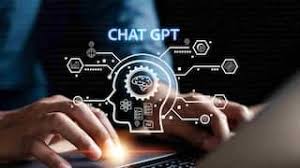
The use of Artificial Intelligence (AI) is no longer limited to technology or chatting. Recently, some people have claimed that AI tools like ChatGPT played an important role in identifying their serious diseases, even when doctors were unable to make the correct diagnosis.
cancer detected with the help of AI
Lauren Bannon, a resident of America, told that in the beginning of the year 2024, she started having trouble bending her fingers. Doctors called it 'rheumatoid arthritis'. After this, she had severe stomach pain and lost about 6 kg of weight in a month. Doctors called it a problem related to acidity.
But Lauren was not satisfied and she consulted ChatGPT. AI indicated to her that it could be "Hashimoto's Disease", an autoimmune disease in which the body's immune system starts attacking the thyroid gland. However, her doctor dismissed this possibility because there was no such disease in the family before. Despite this, Lauren insisted on getting tested. On getting a thyroid ultrasound done, two cancerous lumps were found in her throat.
Bannon says that if she had only followed the doctors' advice, the cancer might have spread from the throat to other parts of the body. She clearly said that ChatGPT saved her life.
AI told that it was blood cancer
Apart from this, a 27-year-old woman from paris told that in the beginning of the year 2024, she was having problems of sweating at night and constant itching of the skin. The doctors did many tests, but no serious disease was found. When the woman consulted ChatGPT, the AI indicated that it could be blood cancer.
Several months later, when the woman started feeling fatigue and chest pain, she again got herself examined by the doctors. The scan report found a large tumor near her lungs. Later she was diagnosed with Hodgkin lymphoma (a type of blood cancer). The same disease which the AI had indicated long ago.
Although AI tools like ChatGPT are not a substitute for medical professionals, they can prove to be a useful aid in providing early information and understanding potential diseases.




 click and follow Indiaherald WhatsApp channel
click and follow Indiaherald WhatsApp channel